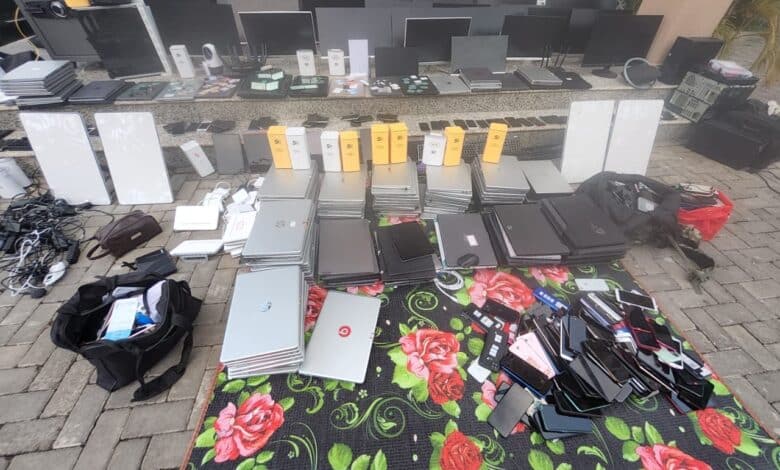In Zambia, authorities detained 14 alleged members of a criminal organization that hacked the phones of victims. In the fraud, a malicious link was sent in a message that, when clicked, corrupted the device with malware. This made it possible for hackers to gain access to banking apps by taking over the messaging account and eventually the phone. In order to promote the scam, the hackers also managed to publish the malicious link within groups and discussions using the victim’s messaging apps.
During the operation, 45 members of a criminal network were detained by Rwandan police for their role in social engineering frauds that duped victims of more than USD 305,000 in 2024 alone. Their strategies included pretending to be telecom workers and making up “jackpot” victories in order to obtain victims’ mobile banking accounts and sensitive data. Another strategy was to pretend to be an injured family member in order to approach relatives for money to cover hospital expenses. 292 devices were confiscated and USD 103,043 was recovered overall.
”The success of Operation Red Card demonstrates the power of international cooperation in combating cybercrime, which knows no borders and can have devastating effects on individuals and communities. The recovery of significant assets and devices, as well as the arrest of key suspects, sends a strong message to cybercriminals that their activities will not go unpunished, ” said INTERPOL’s Director of the Cybercrime Directorate, Neal Jetton
Prior to the operation, countries shared criminal intelligence about important targets. Nigeria, Rwanda, South Africa, Togo, Zambia, Benin, and Côte d’Ivoire were the seven countries that took part.
